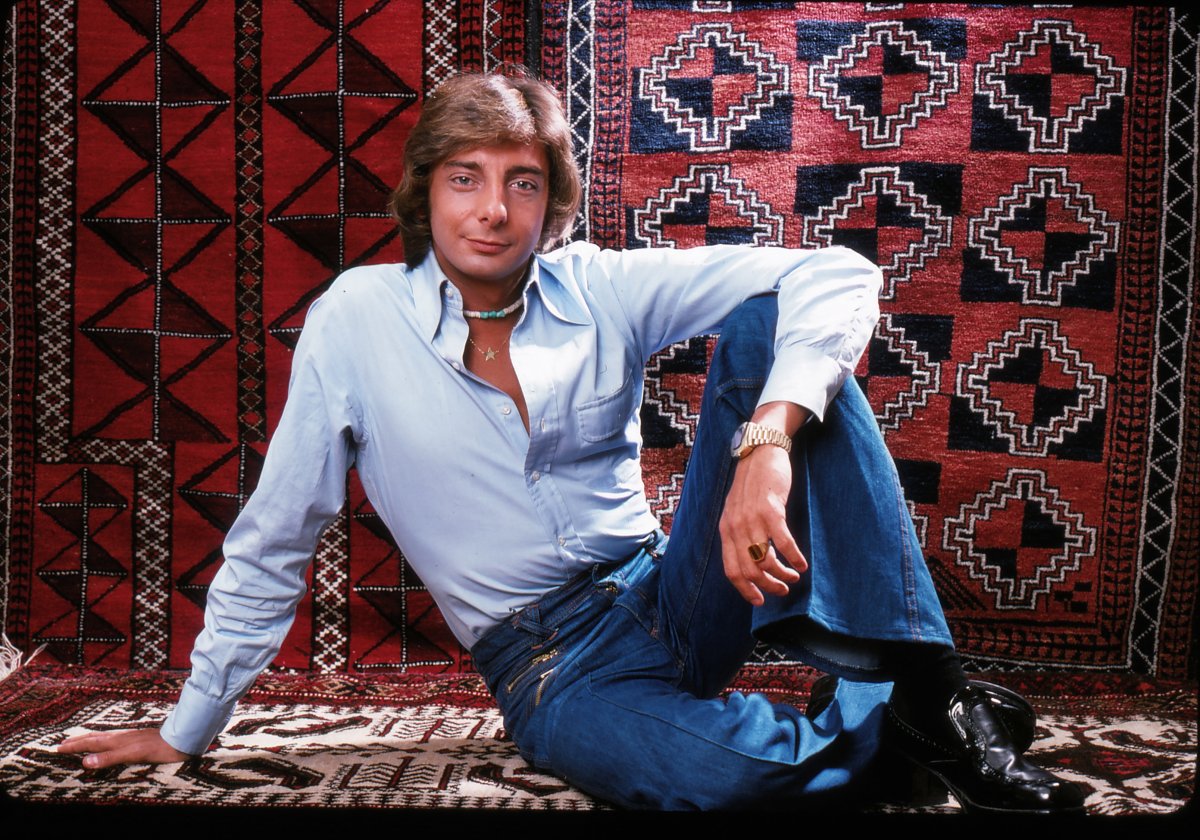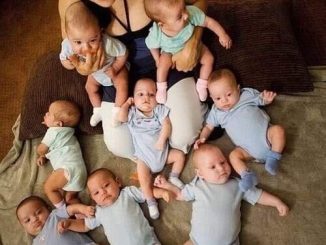
During a guest appearance on HBO’s Who’s Talking to Chris Wallace, the 80-year-old Copacabana singer said he didn’t think it was important to announce his sexuality during the earlier decades of his career.
Manilow came out in 2017, almost three years after he married his husband and manager Garry Kief in a private ceremony. The couple have been together for 45 years now, though they’ve kept much of their relationship away from the public eye.
When he came out to People magazine in 2017, Manilow — whose real name is Barry Pincus — worried he’d be “disappointing” some of his fans by revealing his sexuality. Instead, Manilow, who was 73 at the time, said the reaction from his fanbase was “beautiful.”

Despite his current feelings of nonchalance about his own coming out, Manilow said announcing his sexuality as his career was booming would have been a bad idea.
“Now being gay is no big deal,” he explained. “Back in the ’70s it would have killed a career.”
Regardless, the usually very private Manilow said he thinks “everybody knew that Garry and I were a couple all those years.”
“Really, Garry and I’ve been together for so long,” he said. “It just never dawned on me that we’re going to come out. But when we got married, it was a big deal, so we did.”
Manilow credited Kief for saving his life. He said he is thankful he had Kief to support him as his music career was taking off, despite keeping their relationship under wraps.
“As my career exploded, it was just crazy. And, you know, going back to an empty hotel room, you can get into a lot of trouble if you’re alone night after night after night,” Manilow explained. “But I met Garry right around when it was exploding. And I didn’t have to go back to those empty hotel rooms. I had somebody to cry with or to celebrate with.”
Manilow said he did not wish an isolated hotel room for any young people.
“It was pretty lonely until I met Garry. And then it was fun,” he smiled.
Kief is not Manilow’s first spouse. In 1964, Manilow married his high school sweetheart, Susan Deixler. They were married for one year.
Manilow told CNN’s Wallace he “really did love” Deixler, but added “the gay thing was pretty, pretty strong. I couldn’t deny it.”
The singer said he knew he was gay before marrying Deixler, but their marriage ended because Manilow couldn’t be the committed husband his then-wife needed. He revealed that his sexuality was not the reason his marriage failed.
“We had a very nice marriage, it was great, but I was away every night making music, as a young musician would be,” Manilow described. “It wasn’t good for me, and it wasn’t good for her.”
“I couldn’t be the proper husband,” he continued. “I was out making music every night, sowing my wild oats. I wasn’t ready to settle down.”
Brooklyn-born Manilow skyrocketed to international fame in 1974 after his release of the ever-popular pop-rock ballad Mandy. He became one of the biggest-selling musicians of all time. Prior to his success as a singer-songwriter, Manilow was behind a number of famous commercial jingles for brands like State Farm and Band-Aid — a gig that he has said helped him create catchy hooks for his own hit songs.

Wealthy Man Discovers His Sole Daughter Resides in a Dilapidated Trailer with Twins

A millionaire is stunned when he finds out that his only daughter is living an impoverished life with her twin babies in an old trailer, and he rushes to her aid, unaware his life will never be the same after that day.
As Ben Doyle sliced the steak on his plate and took the first bite of the tender meat, a clinking sound broke the pin-drop silence in his gigantic mansion. He picked up the TV remote and tuned in to the state news channel, as he always did.
Every evening, Ben ate dinner alone while he watched the news because he didn’t have a family. His ex-wife, Cindy, had left him years ago and taken their only daughter, Leah, with her because he was a nobody back then.
At the time, Ben was working odd jobs and trying to start his own business, but all of his endeavors were failing. Cindy wanted a good life and was done with him and his struggles, so she divorced him and married a rich man.
Ben’s finances were not stable, and he couldn’t win Leah’s custody, but he loved her and sent her gifts on her birthday every year.

Years later, when Cindy’s husband received a work transfer and the couple relocated to a different state, Ben lost touch with Leah. He tried calling Cindy to find out where she was, but Cindy didn’t return his calls or texts and even forbade Leah to have any sort of communication with him whatsoever.
All alone and with nobody to love him, Ben’s only focus became his work. He worked day and night until he became a millionaire. But though he had money, fame, and a comfortable lifestyle, Ben didn’t see the point in all of it when he didn’t have people to love him.
He arrived home every evening and there was no one to welcome him. He ate dinner alone while watching TV, then went to bed, woke up the next morning, and returned to work. This was not how he had imagined his life to be…
That day, while Ben was watching TV, the news channel was running a report on women empowerment. The reporter had interviewed women from different strata, including the underprivileged, and Ben was not interested in watching any of it.
“Is that all they got to show us now? Don’t they have something better to report?” he grumbled as he picked up the remote to change the channel. But then he stopped.
He stopped because he couldn’t believe his eyes and the fact that the reporter’s next interviewee was his daughter.
“Good Lord? Leah?” Ben’s eyes teared as he watched the report, which mentioned his daughter was living in an old trailer with her twin babies.
Family is the biggest strength.



Leave a Reply